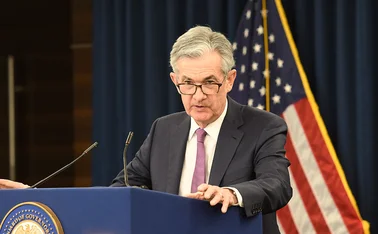
Partners in progress
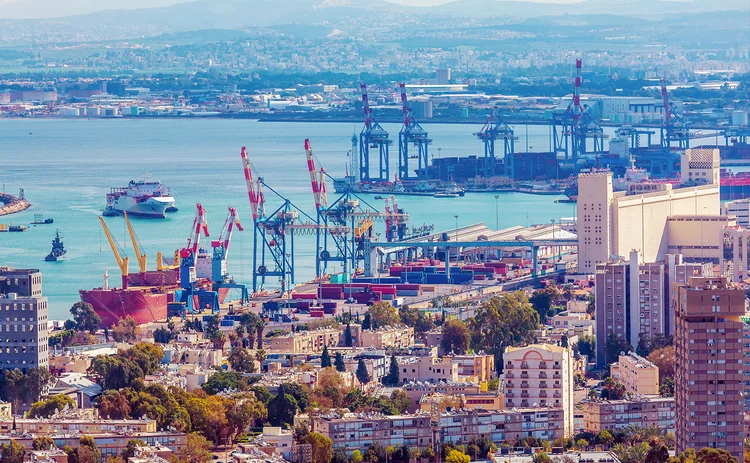
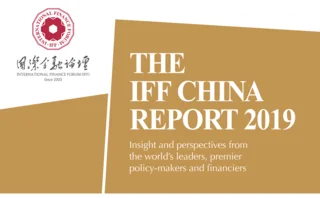
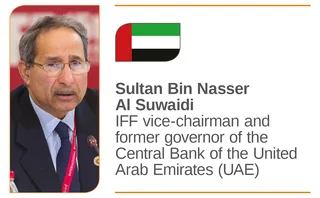
Sultan Bin Nasser Al Suwaidi: The Belt and Road Initiative (BRI) will enhance not only contacts between people but also economic and financial inclusion, which is the UAE’s area of speciality within the global central bank community.
It is important for countries participating in the BRI – especially in Africa and Central Asia – to lay the groundwork for the financial infrastructure that could facilitate capital flows. Three objectives must be met: regulation, implementation and openness in financial services.
Clear and transparent rules and regulatory institutions accessible in any country are also required. Regulation requires a corresponding sponsor within the country, otherwise they are of no use. A specialised institution needs to be established to tackle regulatory problems for both foreign and domestic investors.
But regulations alone are not enough; the implementation process is more important. Large sums of money in developing nations disappear because no secure infrastructure exists to receive and invest local deposits, and foreign investors cannot repatriate their money and reclaim their profit. It is a prerequisite that countries participating in the BRI must devise a mechanism to alleviate this.
Openness in financial services requires the following:
- A mechanism for issuance and approving of unit trusts or mutual funds, especially those that would provide financing for small businesses.
- Venture capital for companies with good ideas but limited or no access to finance.
- Development of local bonds markets. The markets serve business at all times – when there is a crisis, people need to go to the local bonds market and get funds. Business may continue rolling without the ability to issue bonds in the local currency, but it will be difficult to expand, and difficult for countries to mitigate the forces of a global financial crisis.

Shakirudeen Adewale Oloko: Nigeria officially signed up to participate in the BRI in September last year, but the country has a far older relationship with China. Nigeria – and Africa as a whole – recognises it could reap huge benefits from the BRI. Forty years ago, many of China’s huge population lived in poverty, but reform and the policy of ‘opening-up’, and the surge of infrastructure development have clearly moved people out of poverty to achieve what we see today. It is in this light that the BRI is regarded as a development strategy.
In Nigeria, the railway from Lagos to Ibadan was constructed by Chinese corporations. It will eventually extend further to the north and south, and link up with the east–west line. The BRI is also investing in facilities and infrastructure on the roads between Lagos and Abuja.
Electricity is an important part of the BRI. The president of Nigeria, Muhammadu Buhari, visited Beijing in September 2018 and entered into discussions with President Xi Jinping. The Export-Import Bank of China is studying the provision of financial support to the projected Mambilla hydropower project to allow it to provide electricity to Nigeria.
Admiration can go hand in hand with suspicion and doubt, however. Financial support and infrastructure development brought by the BRI to Africa has led to much discussion by opinion-
makers and experts that it may lead to a debt trap.
In Africa, globalisation has been controversial. It was not well received and the impact was obvious to all: income inequality and poverty. Africa needs trade rather than aid. Only when one can fully participate in the global system is it time to talk about development. It will be usual for developed countries to continue to dominate the discussion, and perhaps the BRI will go a long way to solving these problems associated with globalisation.
For now, Nigeria believes the BRI can bring back economic progress and – most importantly to developing countries – bring more development, better provision for the people, more employment and less poverty. The BRI can help provide the necessary economic lift-off and could advance people to a better life, as has been successfully demonstrated in China itself.
Chinese policy-makers should note that domesticating the technology introduced to Africa will provide employment opportunities here. People will be more supportive when they see improvements to their livelihood, income and prospects.
It is crucial that recipients of financial support for infrastructure development estimate and understand their capacity to pay it back, rather than mortgage the future. International finance will always look for returns. It should be agreed that development and growth is shared, and nobody will be left behind – this would be real progress. The China International Import Expo in Shanghai last year was a good example of revealing the opportunities other countries will have to export to and reduce trade imbalances with China. Countries do not use their foreign exchange to pay debts while embarking on the path of development.
It is important we look at what the BRI has achieved in the past five years, and anticipate where it will be in the next five. When its 10th anniversary is celebrated, it will not be a recommendation or condemnation of the whole process, but a celebration of those development successes and positive outcomes.
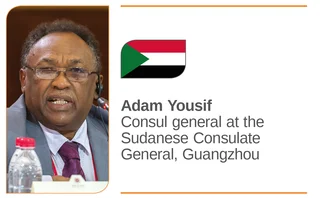
Adam Yousif: The BRI aims to bring peaceful economic co-operation and development to all participating nations. In response to the crippling crises and economic faultlines of today, the BRI offers an abundance of alternative applications to benefit the world economy as a whole.
It is introducing co-operation, not conflict; honourable, not aggressive, competition; and openness, not introversion. The BRI also brings cultural co-operation, which will be important to bring the world community together. It is very important all participants in the BRI feel it is made for them – that everyone should aim for a win‑win situation – the BRI is not an initiative built only for one party. A Chinese saying truly reflects
this win‑win relationship: “Your prosperity depends on that of your neighbours.”
Sudan is at the heart of the BRI route: to the north and west it serves as a gateway from Asia into Africa; to the east lies the Red Sea. In a way, Sudan connects north-east Africa with Europe. In Africa we attach great hope and importance to the BRI and believe it will carry us forward to greater development. The success of the last summit of the Forum on China–Africa Cooperation in November 2018 proved a great leap toward further economic co-operation and implementation of the BRI.
Issues around debt are a pressing topic in any discussion about the BRI. It is a very real problem – although it varies between different countries and regions – and should be avoided. The cause of debt in Africa is more obvious. We need to look closely at the past, learn from experience and forge new economic relations in the spirit of general co-operation. Debt and its pitfalls should be addressed and discussed and lessons learned in order to press on with making a success of the BRI.
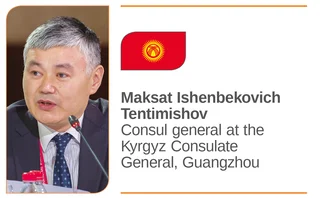
Maksat Ishenbekovich Tentimishov: Kyrgyzstan and China have maintained friendly relations since ancient times. Three branches of the ancient Silk Route passed through the territory of what is now Kyrgyzstan, which contributed not only to trade but to an active exchange of culture and values between the Kyrgyz people and other countries. One of the symbols of historical and cultural ties between Kyrgyzstan and China is Li Bai – the greatest Chinese poet of the Tang dynasty – who was born in the ancient city of Suyab, in the north of Kyrgyzstan.
Kyrgyzstan and China are good neighbours and strategic partners. Since the establishment of diplomatic ties, both countries have witnessed sustainable and healthy development of bilateral relations.
Kyrgyz president Sooronbay Jeenbekov’s successful visit to China has further consolidated the friendship and trust between the leaderships of the two countries. During this visit, President Xi and President Jeenbekov mapped out the future development of bilateral ties.
Kyrgyzstan and China are founding members of the Shanghai Cooperation Organisation (SCO). According to the SCO’s framework, the heads of state meet once a year, as do the heads of government, to discuss outstanding bilateral issues.
China is one of the principal economic partners of Kyrgyzstan and the nation’s primary foreign investor. China has financed numerous projects in Kyrgyzstan in infrastructure, energy and mining. It is our largest lender and the source of much development finance; current projects include the Kyrgyzstan–China gas pipeline, a north-south highway and the construction and repair of roads in the capital, Bishkek.
The Silk Road Economic Belt, part of the BRI, was proposed by President Xi during his first visit to Kyrgyzstan in September 2013. Kyrgyzstan fully supports the BRI, and our positive response can be easily understood. It offers huge and much-needed economic opportunities to Kyrgyzstan. We are confident that the willingness of the Chinese leadership to advance its regional integration will have significant ramifications for Kyrgyzstan in particular. The two countries’ economies complement each other: China has advanced technology and financial systems, whereas Kyrgyzstan has resources and is a good base for further beneficial co-operation. The government of Kyrgyzstan is willing to strengthen practical co-operation with China by making a net contribution to the construction of the BRI.
At the 2017 Belt and Road Forum in Beijing, President Jeenbekov noted the importance of expanding the fibre-optic communication lines from China to Europe as well as Kyrgyzstan’s e‑commerce and the creation of logistics centres.
As the BRI intends to connect Asia, Europe, the Middle East and Africa with transportation systems and a vast logistics effort, the government of Kyrgyzstan hopes a China–Kyrgyzstan–Uzbekistan railway project – which would further develop trade relations between China and Central Asia – will be included in the BRI framework. Kyrgyzstan attaches great importance to this project and endeavours to push it forward.
The construction of hydropower stations and the production of clean energy is a very promising sphere of Kyrgyzstan–China BRI co-operation. Kyrgyzstan has huge hydro potential, generating 150 billion kilowatt hours of electricity per year. At present, only 10% of this potential is tapped but but Pakistan, which faces electricity shortages, could be a big importer in the future.
At this moment, Kyrgyzstan and its neighbours in the region are developing hundreds of projects to export electricity to Pakistan. Electricity transmission networks are being built between Kyrgyzstan and Pakistan, Tajikistan and Afghanistan. Construction is expected to be completed in 2021, and the export of surplus hydro-electricity to Pakistan will begin. The government of Kyrgyzstan continues to seek Chinese investment for the construction of hydropower stations to meet Pakistan’s electricity demand.
It is important to note that Kyrgyzstan has 6 million inhabitants, but trades in a market of 180 million. This is the common market of the Eurasian Economic Union (EEU), of which Russia, Armenia, Belarus, Kazakhstan and Kyrgyzstan are members. Free trade without customs duties is the major advantage here. A Chinese businessman entering Kyrgyzstan claims the opportunity to enter the common market of the EEU. The government of Kyrgyzstan therefore welcomes Chinese investment here to take advantage of the country’s low cost of power, labour and land, and to meet the demand for Chinese goods across the EEU countries.
In conclusion, the bilateral relations between China and Kyrgyzstan will only become more effective and efficient within the framework of the BRI to the common benefit of the people of both countries.

Dipak Banjade: Today’s political environment is susceptible to a ripple effect, where events in one place can easily influence events elsewhere, to the extent of having an impact on the other side of the world. The Tunisian revolution in 2011 was arguably the stimulus to the Arab Spring uprisings, thanks in part to the media and internet, which have rapidly increased the speed at which information travels. The growing interconnectedness of our world means globalisation is both a friend and foe.
China has emerged as a pre-eminent economic and political figure. Every step China takes has an impact on the rest of the world. The BRI is generally welcomed by the rest of the world; in parts of Africa and Asia, many expect the BRI to ignite their own country’s growth prospects by increasing investment and new technology streams to infrastructure projects there.
While success is not assured – and some countries worry about China’s advancing grip on the world – the BRI’s wide reach is making a positive impact. Many countries want to benefit from these kinds of initiatives, which suggest a more ‘mature’ form of globalisation is possible.
So why is the BRI important to Nepal? The prosperity of one country’s neighbours can impact a country’s own prosperity. Underdeveloped Nepal sits on the south-west border of China, and wants to benefit from China’s success. but growth opportunities for Nepal are limited given its geographical location – landlocked, sandwiched between China to the north and India to the south. Connectivity as a result is poor, making the transportation of goods and services difficult.
We hope the BRI will bring forth a better world, one that enables Nepal to grow. There are currently numerous rail initiatives taking place as part of the BRI, and we hope this will eventually lead to a railroad link between Nepal and China. Not only will this benefit our two countries, but Nepal could in time become a bridge between China and India. If China and India can facilitate economic relations via Nepal, we hope to become a prosperous country within the region.
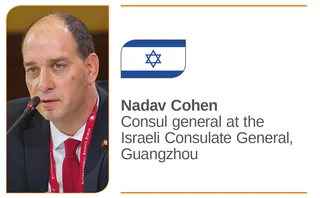
Nadav Cohen: Bilateral relations between Israel and China are improving all the time. Israel today enjoys a very special relationship with China in economic co‑operation and high-tech innovation.
Israel fully supports the BRI, which has seen Chinese companies take on major infrastructure projects in Israel. One Chinese company has constructed the new terminal of Israel’s biggest seaport, the Port of Haifa, and another operates the new northern seaport at Ashdod. Another two work on the infrastructure of the light rail system in the main business city of Tel Aviv. Building on these foundations, the Israeli government has invited the Chinese government to escalate the number of projects China will partner Israel in. The BRI is a vision to fulfil over the next 30 or 50 years, so these first five years have only been the first phase – not perfect but a very good start.
Israel and China can conduct more bilateral projects in the interests of both countries. Furthermore, Israel believes the two nations can conduct trilateral projects in other countries, along either the Silk Road Economic Belt or the Maritime Silk Road. In its 70 years of independence, Israel has gained rich experience of developmental projects in emerging economies, and regional co-operation with our neighbours. Israel can make a valuable contribution to upcoming BRI projects.
Only users who have a paid subscription or are part of a corporate subscription are able to print or copy content.
To access these options, along with all other subscription benefits, please contact info@centralbanking.com or view our subscription options here: http://subscriptions.centralbanking.com/subscribe
You are currently unable to print this content. Please contact info@centralbanking.com to find out more.
You are currently unable to copy this content. Please contact info@centralbanking.com to find out more.
Copyright Infopro Digital Limited. All rights reserved.
As outlined in our terms and conditions, https://www.infopro-digital.com/terms-and-conditions/subscriptions/ (point 2.4), printing is limited to a single copy.
If you would like to purchase additional rights please email info@centralbanking.com
Copyright Infopro Digital Limited. All rights reserved.
You may share this content using our article tools. As outlined in our terms and conditions, https://www.infopro-digital.com/terms-and-conditions/subscriptions/ (clause 2.4), an Authorised User may only make one copy of the materials for their own personal use. You must also comply with the restrictions in clause 2.5.
If you would like to purchase additional rights please email info@centralbanking.com





